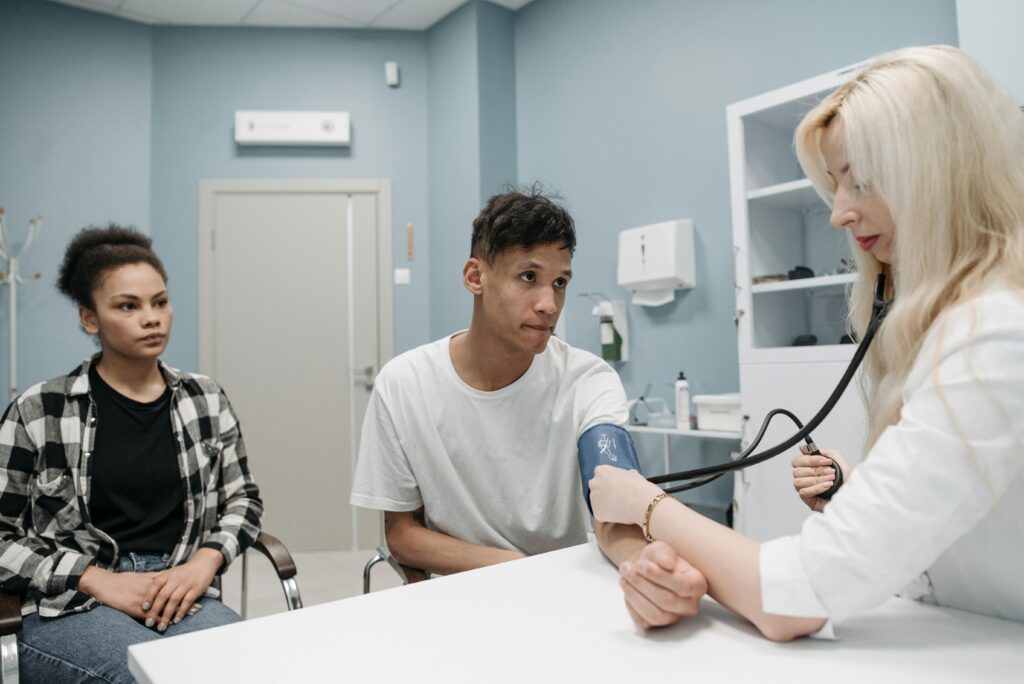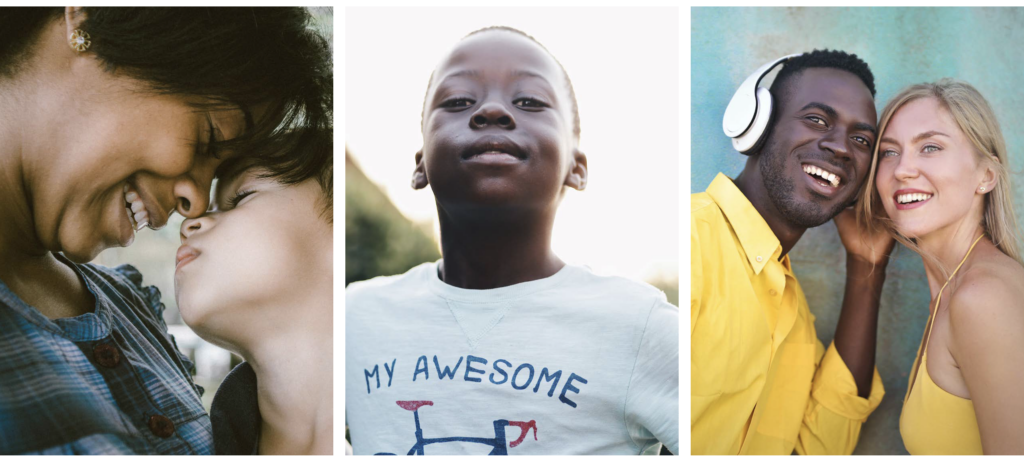Dear friends,
It’s our honor this month to hand over this newsletter greeting to guest writers and my esteemed colleagues Sara Bader, Training Programs Director, Tatiana A. Perez, Business Operations Director, and Ellen Lawton, Senior Fellow. Enjoy!
In solidarity,


Rishi Manchanda, MD, MPH. Sadena Thevarajah, JD
Some days it’s hard to be a champion of equity—and there have been a lot of those days lately. When the Supreme Court undermines reproductive rights and affirmative action, when boards of education ban books that depict diverse lives, and when state legislatures set policies that put transgender people at risk, it’s easy to feel overwhelmed.
This sense of overwhelm can be especially discouraging when you’re staring at giant systems that seem anchored in their inequitable ways, and when your role at work doesn’t give you the opportunity or the sway to change that.
A remedy to overwhelm that has helped us is to find ways to feel effective—and that often means identifying how your particular skills can help in your own local setting. Inequity unfolds at every level, from societies to institutions to communities to neighborhoods, so your passion and knowledge about advancing equity is relevant wherever you are.
Or, as our friend and colleague Kate Marple wisely advises, when the mess seems so much bigger than you, “Clean up your spot.”
What does that mean? It means looking at the groups you belong to, the neighborhood you live in, the schools your kids attend, and the places you worship, and using your perspective, experience, and privilege to bring about change in accessible ways. This could look like:
-
Subscribing to city and county newsletters to see what is happening locally and identify opportunities to speak up for equity;
-
Advocating for kids with disabilities in your school district. Attending school board meetings. Joining the PTA.
-
Volunteering for a voter rights hotline.
-
Helping a neighbor address discrimination that’s affecting them at school or work.
-
Identifying diverse, inspiring voices (on social media or wherever you hang out) to keep you fueled with courage, guidance, hope, and strategies for doing better.
“Small but mighty” change agents are essential to the progress we want to see. Our own experiences have shown us the value of this approach, in ways big and small. Even individual interactions make an impact. Here Tatiana describes one way she does this on a personal scale:
I am aware that I have privilege because I am cis-gendered and fem, and therefore I don’t appear queer and do not have to deal with people’s homophobia. So with my privilege, what I’ve done is engage with family members or community members who have homophobic beliefs—to question assumptions, challenge them, combat years of homophobia in the Latinx community—helping people realize that we just want to feel accepted as part of the family. In a recent conversation I shared my story of coming out and what it meant to receive my parents’ support. After that, this person had his first conversation ever with his brother’s partner, the first time acknowledging his partner and accepting and loving his brother regardless of who he loves. I felt I had made a difference.
One of the bigger ways to be a change agent is serving on local boards and commissions, which always need people with diverse skill sets and backgrounds.
Here’s Sara on her experience:
In 2020, George Floyd was murdered a mile from where I once worked at a major health system in Minneapolis, and I realized that I knew nothing about that neighborhood. I didn’t want to be in that position again, of not knowing the community I exist in. So, since I’m trained as an urban planner, I applied and was selected to serve on the Planning Policy Commission of the Seattle suburb where I live now.
My city is racially but not very economically diverse, struggling with short housing supply and affordability and NIMBYism, and it has identified publicly that it needs to improve equity. The commission is now providing input on an update to the city’s comprehensive plan, which shapes future growth, and we recently received training on how to apply an equity lens to our decisions. The trainer walked us through the process of conducting a root cause analysis and considering the equity impacts of any decision—but stopped short of asking us to translate our new understanding into action. My experience in Upstream Quality Improvement lit up connections around my brain, so I spoke up.
Awareness is not enough, I said. Beyond identifying potential harms, the city should test ideas to actively mitigate past and prevent future harm. And as a predominantly White commission, we need to recognize that our voices are not enough, that we can theorize about potential impacts, but we don’t know because we don’t experience them. I realized that it was the work I do every day in the Upstream Movement that gave me the knowledge and confidence to be that advocate closer to home, and I felt grateful for the opportunity to apply it.
And here’s Ellen:
Fifteen years ago I was invited to serve on the board of a public health organization in my home state of Massachusetts, and it was one of the most important experiences of my professional life. It unlocked for me a vastly greater understanding of leadership, organizational functioning, and my own role and responsibility as a White ally in organizations, in my community, and in service work. I learned that my voice is important in the boardroom to speak to issues of structural racism and diversity, inclusion, and belonging. It’s not just the job of people of color. The experience taught me about understanding and using power.
So the next opportunity I had to serve on a board, I was better prepared and I was bolder. I sought partnerships with other board members to catalyze change to better represent the communities the organization serves. One of the most significant changes we made was initiating term limits, thereby opening space on the board for more diverse voices.
Tatiana also serves on the board of a social service organization in East LA, where she makes a practice of questioning the language used in public settings and advocating to make it equitable. She explains why it matters that we say “under-resourced” instead of “underprivileged” communities, or “person without housing” rather than “homeless,” or Latinx instead of Latino.
A critical point in these stories is that our everyday work as Upstreamists equips us with knowledge and skills that we can apply, beyond our day jobs, in our own communities. Our work empowers us to insist on equity everywhere we go.
So when you feel daunted, ask yourself: What are the particular skills and life experiences that you uniquely carry? Where are the places in your community where your skills could help improve conditions and foster equity?
Let’s celebrate that our impact can be simple and local and effective. And let’s get cleaning.
Best,
Sara Bader, Tatiana A. Perez, and Ellen Lawton
Featured content
Providing Health Equity for Immigrants in a Time of Crisis
This moment presents an opportunity for healthcare leaders to harness the national attention focused on immigrant care to build investments, policies, and protections to improve care for these communities long-term.
HealthBegins Brief: Addressing Climate Health Inequities With The Community Health Needs Assessment
This HealthBegins Policy and Practice Brief invites every healthcare organization to immediately begin addressing the impact of climate change on health at the community level and with community participation.
Immigration Enforcement in Healthcare Settings: How to Prepare and Respond
Many of our healthcare partners are asking how they should prepare for potential ICE encounters on their premises and respond in the interim to concerns among patients and staff. These questions, answers, and resources provide some guidance.



